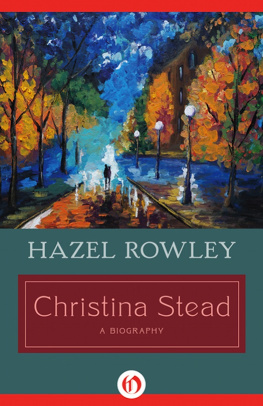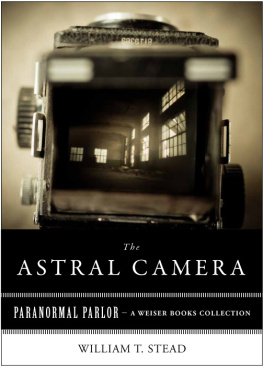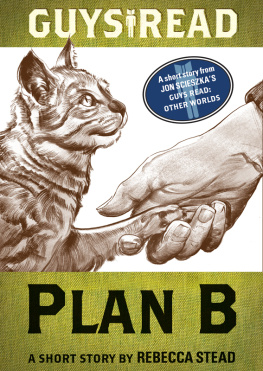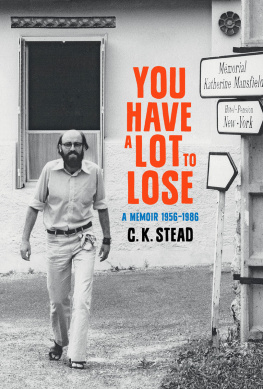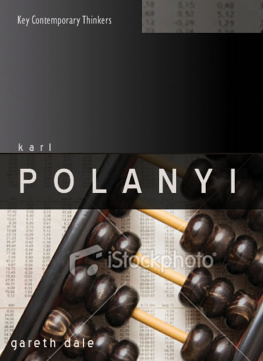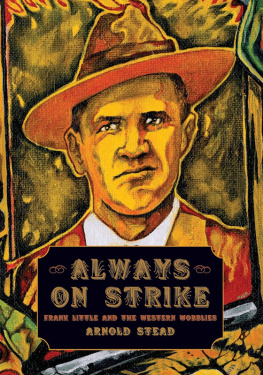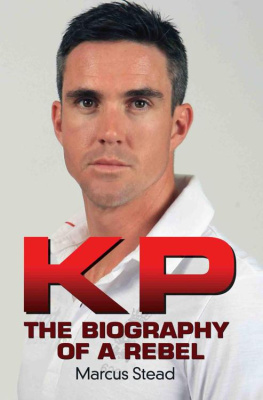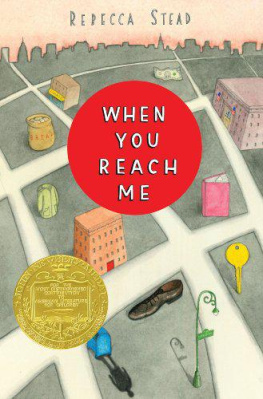Karl Stead - Shelf Life
Here you can read online Karl Stead - Shelf Life full text of the book (entire story) in english for free. Download pdf and epub, get meaning, cover and reviews about this ebook. year: 2016, publisher: Auckland University Press, genre: Art. Description of the work, (preface) as well as reviews are available. Best literature library LitArk.com created for fans of good reading and offers a wide selection of genres:
Romance novel
Science fiction
Adventure
Detective
Science
History
Home and family
Prose
Art
Politics
Computer
Non-fiction
Religion
Business
Children
Humor
Choose a favorite category and find really read worthwhile books. Enjoy immersion in the world of imagination, feel the emotions of the characters or learn something new for yourself, make an fascinating discovery.

- Book:Shelf Life
- Author:
- Publisher:Auckland University Press
- Genre:
- Year:2016
- Rating:5 / 5
- Favourites:Add to favourites
- Your mark:
- 100
- 1
- 2
- 3
- 4
- 5
Shelf Life: summary, description and annotation
We offer to read an annotation, description, summary or preface (depends on what the author of the book "Shelf Life" wrote himself). If you haven't found the necessary information about the book — write in the comments, we will try to find it.
Shelf Life — read online for free the complete book (whole text) full work
Below is the text of the book, divided by pages. System saving the place of the last page read, allows you to conveniently read the book "Shelf Life" online for free, without having to search again every time where you left off. Put a bookmark, and you can go to the page where you finished reading at any time.
Font size:
Interval:
Bookmark:
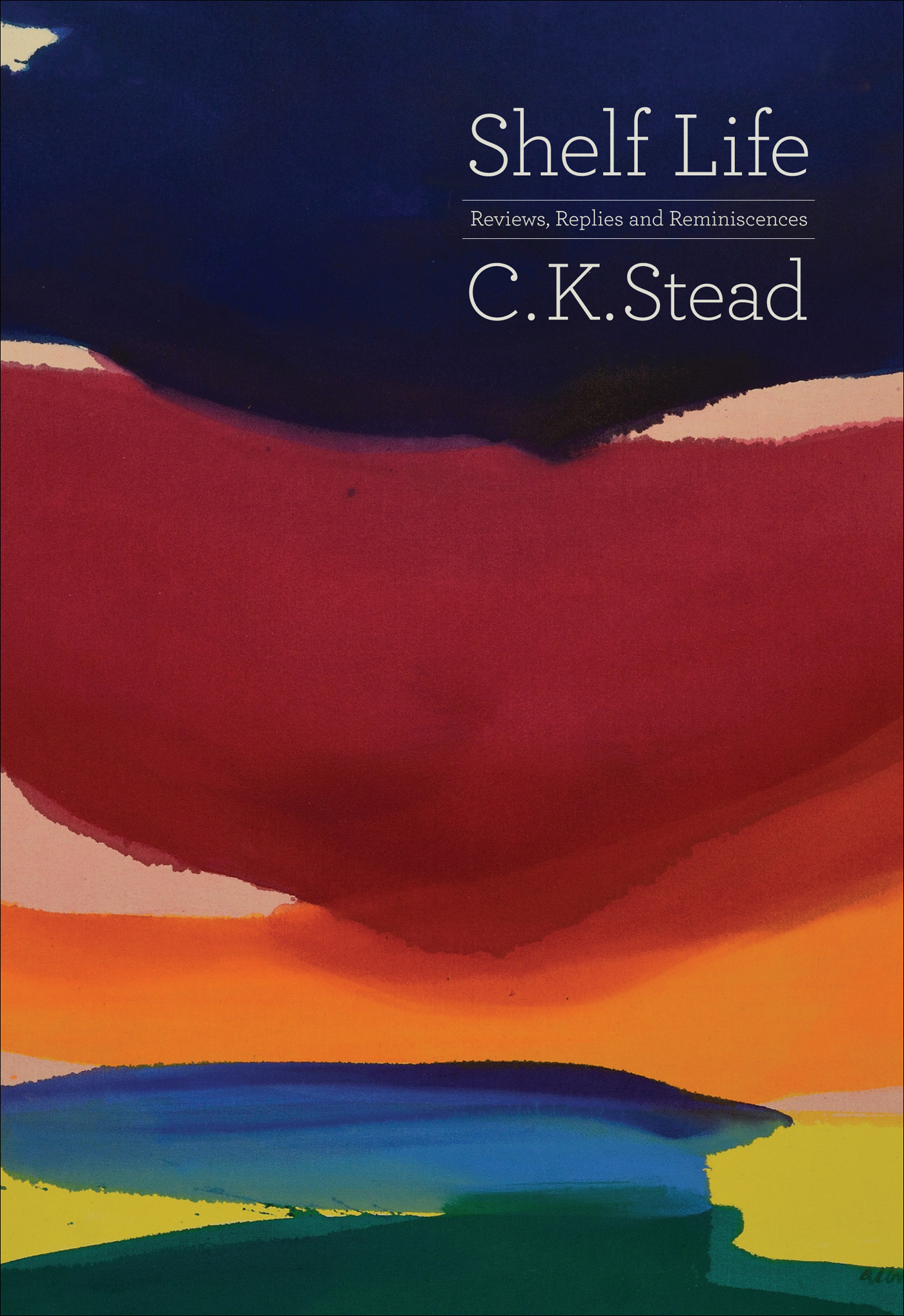
C. K. Stead was born in Auckland in 1932. From the late 1950s, he began to earn an international reputation as a poet and literary critic and, later, as a novelist. He has published more than 40 books and received numerous prizes and honours recognising his contribution to literature, including in 2009 the Prime Ministers Award for Fiction and the Montana New Zealand Book Award (Reference and Anthology) for his Collected Poems and in 2010 the Sunday Times EFG Private Bank Short Story Award and the Hippocrates Prize for Poetry and Medicine. He received our highest award, the Order of New Zealand, in 2007, and he is the New Zealand poet laureate for 20152017.
BY THE SAME AUTHOR
Poetry
Whether the Will is Free
Crossing the Bar
Quesada
Walking Westward
Geographies
Poems of a Decade
Paris
Between
Voices
Straw into Gold
The Right Thing
Dog
The Red Tram
The Black River
Collected Poems 19512006
The Yellow Buoy: Poems 20072012
Fiction
Smiths Dream
Five for the Symbol (stories)
All Visitors Ashore
The Death of the Body
Sister Hollywood
The End of the Century at the End of the World
The Singing Whakapapa
Villa Vittoria
The Blind Blonde with Candles in her Hair (stories)
Talking about ODwyer
The Secret History of Modernism
Mansfield
My Name Was Judas
Risk
Criticism
The New Poetic
In the Glass Case
Pound, Yeats, Eliot and the
Modernist Movement
Answering to the Language
The Writer at Work
Kin of Place: Essays on 20
New Zealand Writers
Book Self: The Reader as Writer
and the Writer as Critic
Autobiography
South-West of Eden
Edited
New Zealand Short Stories (2nd series)
Measure for Measure (a casebook)
The Letters and Journals of Katherine Mansfield: A Selection
Collected Stories of Maurice Duggan
Faber Book of Contemporary South Pacific Stories
Werner Formans New Zealand
Shelf Life
Reviews, Replies and Reminiscences
C. K. Stead

To my fellow poet-critics and friends of many years Craig Raine in Oxford and Mike Doyle in Victoria, BC
P utting together a collection of this kind makes me more aware than I usually am of the categories in which I have worked poetry, fiction, non-fiction and how the last of these has divided between academic publication and varieties of literary journalism. I had always been a writer first and anything else second; but thirty years ago, when I left the university to become the writer full-time, I was nervous that working alone and lacking the pressures of a timetable, busy colleagues and eager students, I might find myself sitting about doing nothing. I had a wife, Kay, still working at the university library. Now I had to earn my living in a new way. I gave myself a five-day working week, and kept office hours, though of course I could and did work overtime. My old friend and mentor, Frank Sargeson, used to require of himself a page a day handwritten, so possibly only 300 words. I was making up for lost time, and that would not have seemed enough. I worked very hard and consistently. I had worked hard as a university teacher too, but now it was at what I wanted to do rather than at what the timetable required.
My days began with a vigorous walk or a swim, and then the morning was devoted to the primary project of the moment fiction at first; but later, once I had proved to myself that I really was a working novelist, I would switch for a period to poetry mode. So there was soon an almost regular alternating pattern a novel followed by a collection of poems, and then fiction again. Sometimes this work continued after lunch; but on the whole I tried to reserve the afternoons for the other side of my professional life reviews, literary journalism, columns, occasional lectures, correspondence. For a time I reviewed fiction for the Sydney Morning Herald; at another period I wrote a column for Metro; for over fifteen years I wrote for Karl Millers London Review of Books. And I wrote randomly for a number of literary journals and newspapers both local and overseas. My academic life did not quite stop either. I was still known for work on the poetry of twentieth-century Modernism, and invitations came to lecture, visit, supervise. My life fell into a pattern of nine or ten months at home working in Auckland, and two or three (very occasionally more) overseas. No year passed when I didnt cross the equator at least once.
Monetary rewards varied; but, given that the New Zealand market is small, I had what I needed to keep afloat as a professional writer overseas publishers. Nothing of mine ever sold quite as well as my first critical book, The New Poetic, which was published on both sides of the Atlantic in a number of formats and editions, and has remained in print in Britain for half a century. I learned early that it is very important to be practical about money matters; but it is also true that the financial rewards seldom ran even approximately parallel with ones inner sense of achievement, and the inner sense was the one that mattered most. Money from advances, royalties, translation rights and movie options, local grants and awards, international prizes any or all of these were welcome if and when they sent down a small, usually unscheduled, shower of gold. So were the annual authors lending right payments for books in libraries, and grants from Creative New Zealand towards local publishers of poetry, and for travel to attend literary festivals. But the real rewards came when you knew, on your own internal scale of things, that you had written something not just good, but uniquely your own. A poem, a short story or chapter even a page of fiction; a witty review or an insightful paragraph of critical analysis: whatever it happened to be, if the internal monitor told you it was good, that was where true satisfaction, a sort of peace to the spirit, was to be found.
What ghost was being appeased? What wrong was being righted or sin atoned for? I didnt know. It was all, this writing business, and had been since it first began when I was still at school, mysterious, possibly even neurotic. I knew only that for a moment the world which out there seemed so imperfect, so fallen, so much less than the heart desired, in here had been called to order. Others might like what was pleasing me so much, or they might dislike, even deplore it; or (most probable) it would pass unnoticed but one had struck gold of another kind, the kind that gave meaning to the whole project. In a very real sense I was in the business to please myself. If I set out to please others (and particularly something conceived of as the Market) that was a recipe for inauthenticity and failure.
Font size:
Interval:
Bookmark:
Similar books «Shelf Life»
Look at similar books to Shelf Life. We have selected literature similar in name and meaning in the hope of providing readers with more options to find new, interesting, not yet read works.
Discussion, reviews of the book Shelf Life and just readers' own opinions. Leave your comments, write what you think about the work, its meaning or the main characters. Specify what exactly you liked and what you didn't like, and why you think so.

